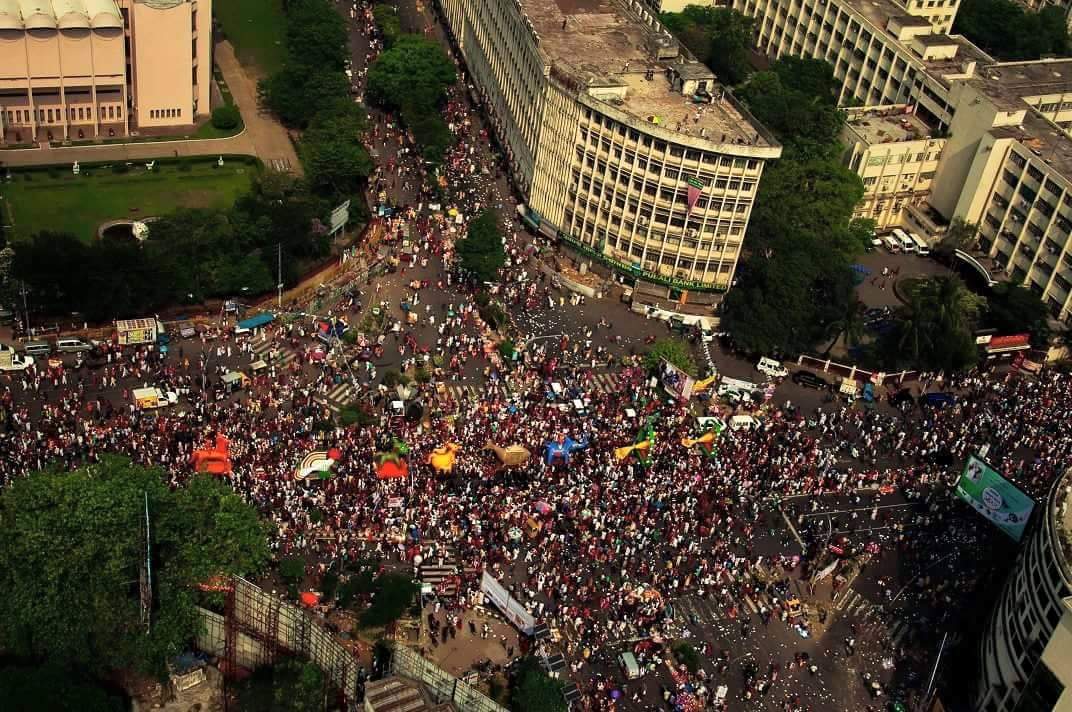Celebrating Life!

Pohela Boishakh is the first day of the Bengali calendar, celebrated on 14 April in the Bangladesh. The Bengali calendar is tied to the Indian solar calendar, based on the Surya Siddhanta. Pohela Boishakh is celebrated with grandeur and colours in Dhaka and other parts of Bangladesh. The celebrations are started at the break of dawn with a rendition of Rabindranath Tagore’s song “Esho he Boishakh” by Chhayanat under the banyan tree at Ramna (the Ramna Batamul). An integral part of the festivities is the Mongol Shobhajatra, a traditional colourful procession organized by the students of the Faculty of Fine Arts of Dhaka University. The procession has a different theme relevant to the country’s culture and politics every year. Different cultural organizations and bands also perform on this occasion and fairs celebrating Bengali culture are organized throughout the country. People from the small and serene town of Jessore woke up early morning on the first day of Boishakh of 1392 Bengali year (14 April 1985) to the beats of Bengali drums. Their surprise changed to wonder when they saw 400 colourfully attired people, mostly children, dancing to the beats of drums and other Bengali folk musical instruments. The precisionists paraded through the town wearing colourful crowns, bearing colourful masks of animals. People, who witnessed the procession, witnessed history, the history of a colourful procession - Mongol Shovajatra - at the dawn of Pohela Boishakh. Some years later, Dhaka Fine Arts Institute brought out a similar procession in 1989, the brainchild of three youths: Mahabub Jamal Shamim, Moklesur Rahman and Heronmay Chanda who were the pioneers of the Jessore procession. Soon the colourful Mongol Shobhajatra spread countrywide and became an integral part of Bengali culture. And thus the Mongol Shobhajatra became a national phenomenon.
Created at 2016-06-14 03:06:08
Back to posts
This post has no comments - be the first one!
UNDER MAINTENANCE




